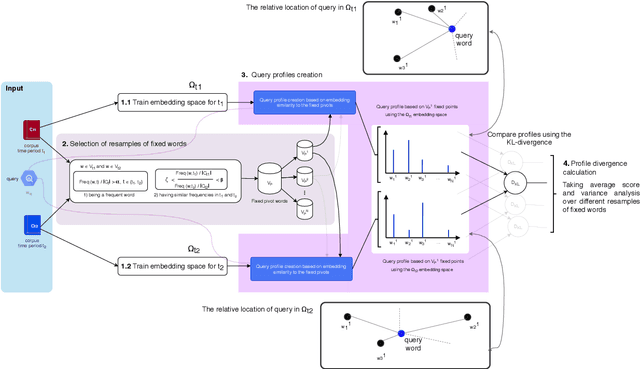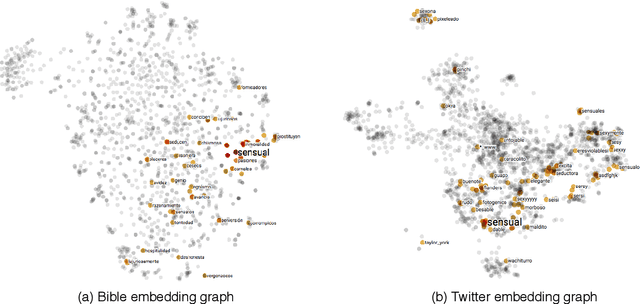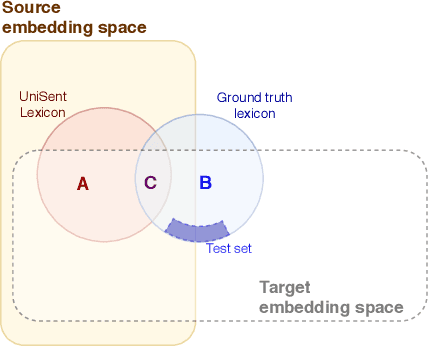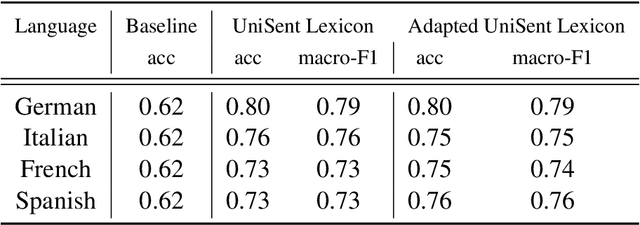Christoph Ringlstetter
Unsupervised Embedding-based Detection of Lexical Semantic Changes
May 16, 2020

Abstract:This paper describes EmbLexChange, a system introduced by the "Life-Language" team for SemEval-2020 Task 1, on unsupervised detection of lexical-semantic changes. EmbLexChange is defined as the divergence between the embedding based profiles of word w (calculated with respect to a set of reference words) in the source and the target domains (source and target domains can be simply two time frames t1 and t2). The underlying assumption is that the lexical-semantic change of word w would affect its co-occurring words and subsequently alters the neighborhoods in the embedding spaces. We show that using a resampling framework for the selection of reference words, we can reliably detect lexical-semantic changes in English, German, Swedish, and Latin. EmbLexChange achieved second place in the binary detection of semantic changes in the SemEval-2020.
UniSent: Universal Adaptable Sentiment Lexica for 1000+ Languages
Apr 21, 2019



Abstract:In this paper, we introduce UniSent a universal sentiment lexica for 1000 languages created using an English sentiment lexicon and a massively parallel corpus in the Bible domain. To the best of our knowledge, UniSent is the largest sentiment resource to date in terms of number of covered languages, including many low resource languages. To create UniSent, we propose Adapted Sentiment Pivot, a novel method that combines annotation projection, vocabulary expansion, and unsupervised domain adaptation. We evaluate the quality of UniSent for Macedonian, Czech, German, Spanish, and French and show that its quality is comparable to manually or semi-manually created sentiment resources. With the publication of this paper, we release UniSent lexica as well as Adapted Sentiment Pivot related codes. method.
 Add to Chrome
Add to Chrome Add to Firefox
Add to Firefox Add to Edge
Add to Edge